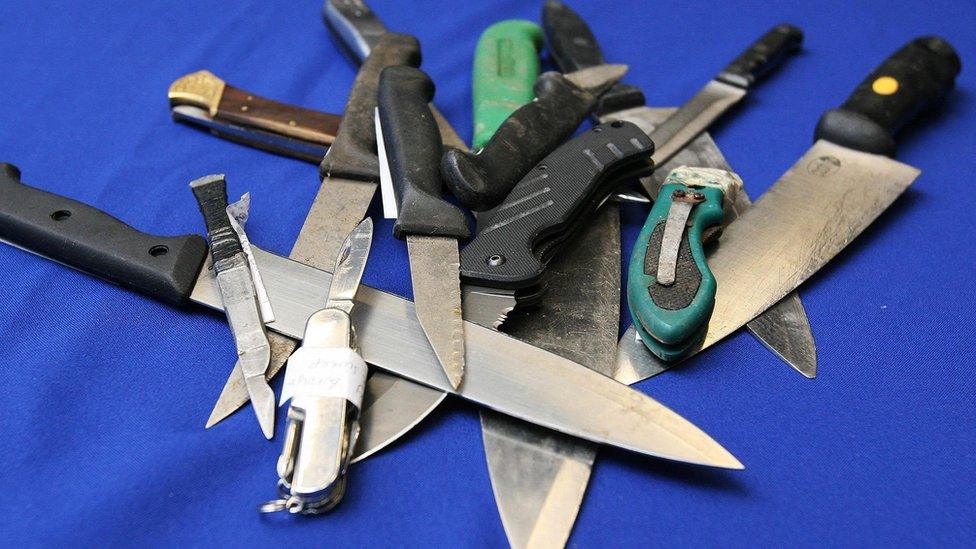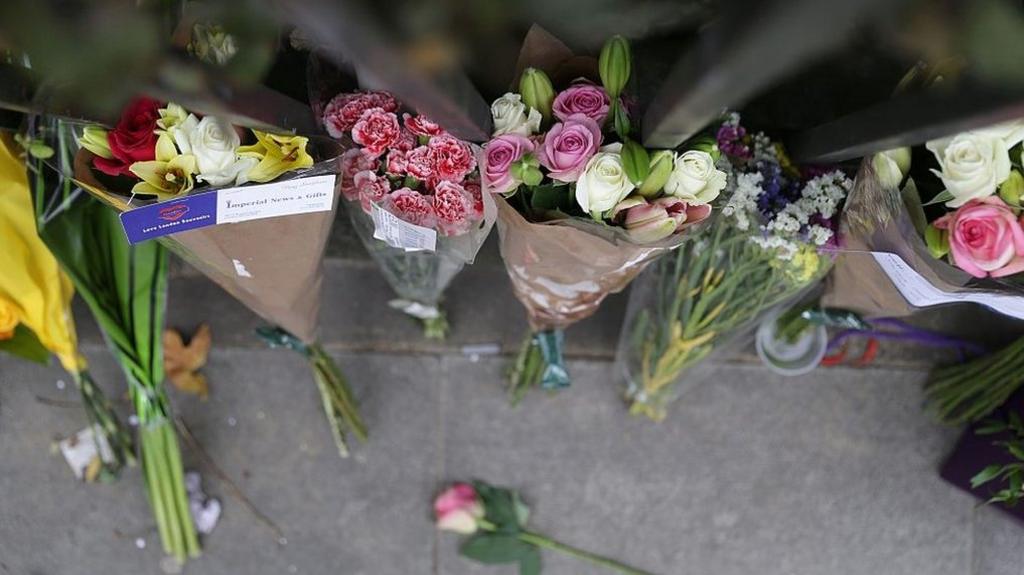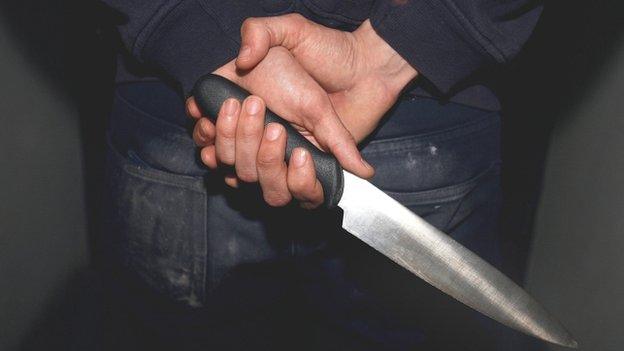Tougher penalties proposed for carrying a knife
- Published
Former gang member Sephton Henry says people carry knives for protection
People caught carrying knives in the street will be jailed for longer under new proposals.
Carrying a knife while in a group or gang, or filming attacks for social media could also spell more jail time.
The Sentencing Council for England and Wales says it wants sentences to better recognise public concern amid a rise in recorded knife offences.
Justice Minister Sam Gyimah said sentences should reflect the "devastation" caused by knife crime.
Police recorded almost 29,000 crimes involving knives in the 12 months to March 2016 - a 10% rise on the year before.
Meanwhile, possession of knives or other bladed weapons rose 16% from almost 10,000 to 11,500.
Some 7,800 adults and 1,400 young offenders were sentenced for knife-related crimes in 2015.
The majority of sentences led to jail and the average sentence for possession was approximately six months.
That is almost double the length of a decade ago - but some 40% of offenders were imprisoned for less than three months.
The council said its proposed changes would ask sentencing judges and magistrates to assess the potential harm of knife possession.
This would likely lead to adults convicted of the most serious incidents being jailed for between one and two-and-a-half years.
Humiliation
Aggravating factors that would lead to extra prison time include carrying a knife while in a group, attempts to hide identity, targeting someone because they are vulnerable, and evidence of wider community impact.
For youth offenders, the council said judges and magistrates should take into account attempts to deliberately humiliate a victim by posting videos or sharing details on social media of the crime.
District Judge Richard Williams, a member of the Sentencing Council, said: "If people carry knives, there is always the risk that they will be used, and with tragic consequences."

Analysis

By Dominic Casciani, BBC home affairs correspondent
The Sentencing Council's proposals are an attempt to make sure that jail terms reflect concerns about knife crime.
While more offenders are being sent to jail than 10 years ago, the number of people prepared to carry knives has recently gone up.
Youth workers say a lot of those caught carrying do so out of a misplaced belief that a knife will protect them from the gangs they want to avoid - gangs involved in intimidation and robbery.
So possession for some is driven by fear, and critics say a lack of visible police officers - or distrust of those who are available - compounds the problem.
Longer sentences will ensure the most dangerous spend longer in jail.
However, former gang members who try to stop others making the same mistake say it won't deal with the fear that convinces someone to carry a blade.
The Sentencing Council is also stressing it wants to see tougher penalties for all knife offenders, not just the young.

Judge Williams added: "Too many people are carrying knives and it only takes a moment of anger or drunkenness for one to be pulled out with fatal results or serious injury.
"Through these guidelines, we want to provide courts with comprehensive, up-to-date guidance to ensure that sentences reflect the seriousness of offending."
Justice minister Mr Gyimah said knife crime "ruins lives", adding: "Our crackdown is working - under this government more people are being sent to jail for carrying a knife, and for longer.
"I want those who carry knives to feel the full force of the law. These new guidelines will help ensure sentences reflect the devastation caused to families and communities."
The proposed new guidelines from the council come after almost a decade of changes to the law around knife crimes.
Last year, the government introduced mandatory "two strikes" jail terms for adults caught with a blade more than once, with a minimum sentence of six months.
But figures show that in almost 12 months following that announcement, nearly half of repeat offenders avoided jail, having successfully argued there were exceptional circumstances to their case.
The consultation lasts until 6 January 2017.
- Published21 September 2016

- Published13 July 2016

- Published16 July 2015
